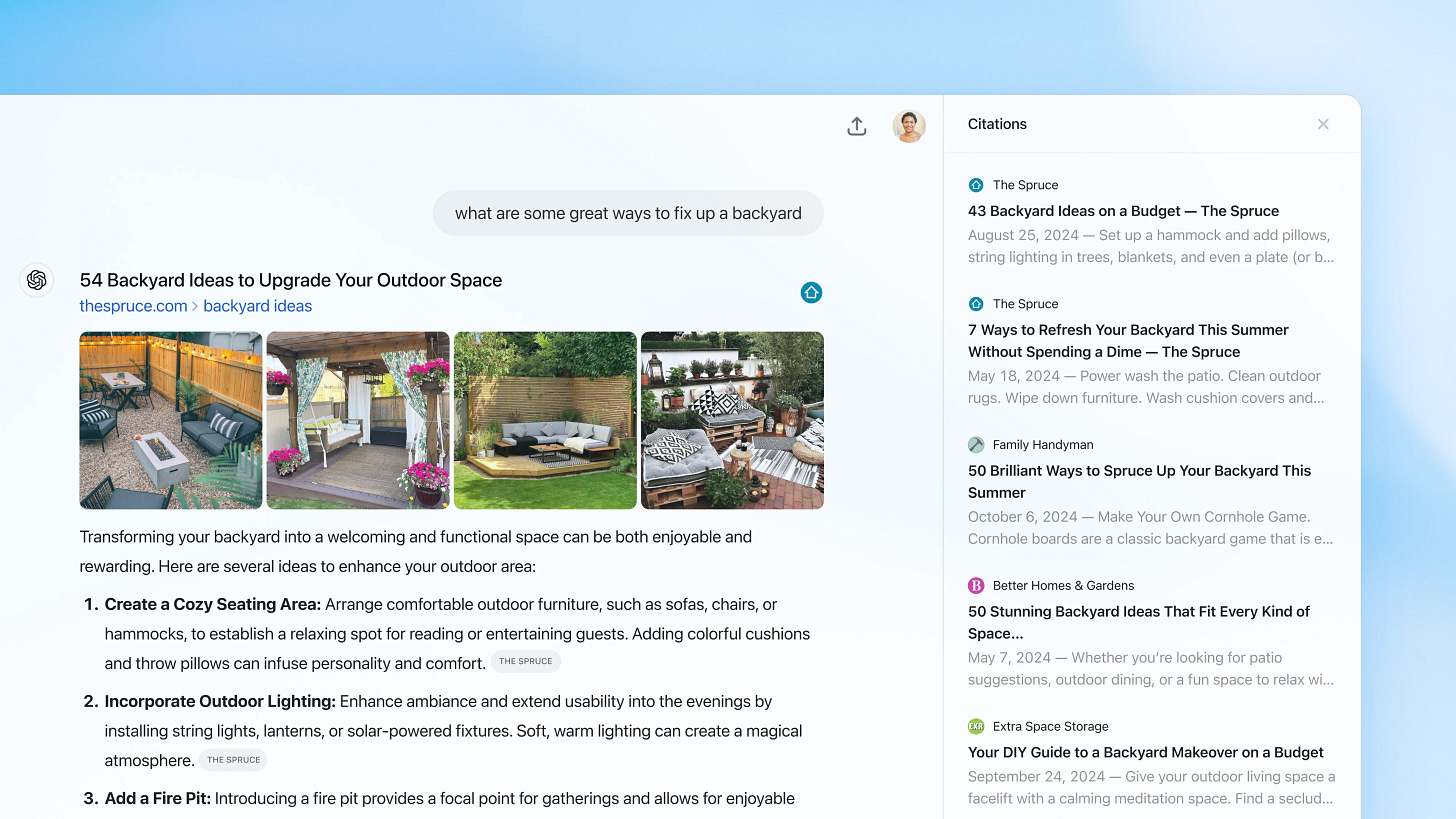ChatGPT search launches: OpenAI enters the AI search race
Taking on Google and Perplexity, OpenAI launches its new search feature with real-time data and media partnerships.
On Halloween, OpenAI launched "ChatGPT Search," integrating real-time information directly into ChatGPT. Users can now get accurate, sourced answers without needing a separate search engine.
ChatGPT can perform web searches automatically or users can trigger it by clicking the "search" icon. The feature is available for Plus, Team, and SearchGPT waitlist users on the ChatGPT website, desktop, and mobile apps, with plans to expand access to other user tiers soon.
With ChatGPT Search, OpenAI closes a key gap with competitors like Microsoft Copilot and Google Gemini, positioning itself as an AI-driven web search engine. CEO Sam Altman called it his favorite feature since ChatGPT's launch, noting a significant increase in his own usage.
Real-Time information with source links
ChatGPT Search retrieves the latest web information, supporting follow-up questions in context. For example, after asking for restaurant recommendations, users can inquire about the local weather without restating the location.
OpenAI has partnered with news and data providers to deliver real-time updates for weather, stocks, sports, and news, complemented by a visual design for easy viewing. Users can click the "Sources" button to view reference links.
Copyright protection and media partnerships
With rising copyright disputes involving AI platforms, ChatGPT Search emphasizes copyright protection. OpenAI partnered with 14 major media organizations, including the Associated Press and Reuters, to respect and credit original content, giving content owners control over their presence in searches.
Powered by GPT-4o and synthetic data
According to Adam Fry, head of ChatGPT Search, the feature uses a blend of search technologies, including collaboration with Microsoft Bing. The model is a fine-tuned version of GPT-4o, enhanced with synthetic data generation.
OpenAI plans to refine search capabilities, especially in shopping and travel, using the o1 series for deeper exploration. Search will eventually expand to voice and canvas features and be available to free users.
AI search competition heats up
ChatGPT Search's launch has sparked questions about the future of Google and Perplexity. Users see "internet usage" evolving in three eras: directory-based (Yahoo), search-based (Google), and integrated knowledge (ChatGPT).
Perplexity CEO Arvind Srinivas took a light-hearted approach to the competition, congratulating ChatGPT Search and sharing a guide to making Perplexity the default search engine. He compared Perplexity's features for financial analysis to ChatGPT's text-only responses.
In a comparison, Perplexity offered a basic definition of the "groq-gradio" Python package, while ChatGPT Search provided a detailed GitHub overview, including features and installation guides—something many developers preferred.
Sam Altman also expressed confidence, tweeting that users should try ChatGPT Plus with the Chrome extension supporting search, calling it "really great."
The AI search competition is heating up. Google has expanded its AI snapshot globally, and Meta is developing its own AI search solutions. Unlike traditional search engines that rely on advertising, AI search has higher operational costs. ChatGPT Search has not mentioned ads, while Perplexity plans a revenue-sharing "publisher program." Google continues to rely on link-based search for revenue.
With ChatGPT in the AI search race, a three-way competition between Google, OpenAI, and Perplexity is underway. Srinivas suggested this might not be a zero-sum game, with each platform capturing a share of the market.
Each company is finding ways to differentiate: ChatGPT aims for a more conversational experience, Google leverages its vast infrastructure, and Perplexity focuses on real-time information. Challenges like high operational costs, copyright disputes, and balancing commercialization with user experience remain. The AI search landscape is evolving, and the outcome is still uncertain.






